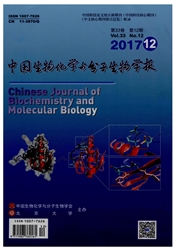

 中文摘要:
中文摘要:
布尼亚病毒科含5个属,350多种病毒,寄主范围包括植物、动物和人类,主要通过节肢动物传播(仅有汉坦病毒属通过啮齿动物传播),其中大部分病毒危害严重,影响农业生产,威胁人类和动物健康,造成重大经济损失。NSs蛋白是布尼亚病毒S RNA编码的非结构蛋白质,可以抑制RNA沉默,在侵染介体和寄主的过程中起时发挥重要作用。在植物寄主中,NSs蛋白通过与病毒dsRNA结合、抑制dsRNA次生扩增、长距离传播等机制抑制RNA沉默;在动物、人类寄主以及传播介体中,多种证据表明,NSs蛋白也能抑制RNA沉默。RNA沉默是植物和节肢动物中主要的抗病毒机制之一,NSs蛋白抑制RNA沉默对于病毒成功侵染寄主或传播介体非常重要。本文就近年来NSs蛋白在抑制RNA沉默方面的研究做一综述。
 英文摘要:
英文摘要:
The Buniyaviridae family is divided into five genera and contains more than 350 identified species. Most Bunyaviruses are arthropod-borne,but only Hantavirus is rodent-borne. Bunyaviruses cause severe economic losses by affecting agricultural production and threatening human and animal health. The Bunyavirus NSs protein is a nonstructural protein encoded by the Bunyavirus S RNA. It inhibits RNA silencing,and plays an important role in infecting vectors and hosts. In the Bunyavirus plant host,the NSs protein inhibits RNA silencing by binding to viral dsRNA and inhibiting dsRNA secondary amplification,and long-distance transmission. In animals,human hosts and transmission mediators,there is accumulating evidence that the NSs proteins may also inhibit RNA silencing,which is the main antiviral mechanism in plants and arthropods. The inhibition of RNA silencing by the NSs protein is very important for the successful infection of hosts and vectors. The recent progress in suppression of RNA silencing by NSs is reviewed in this paper.
 同期刊论文项目
同期刊论文项目
 同项目期刊论文
同项目期刊论文
 Calla lily chlorotic spot virus from Spider Lily (Hymenocallis litteralis) and Tobacco (Nicotiana ta
Calla lily chlorotic spot virus from Spider Lily (Hymenocallis litteralis) and Tobacco (Nicotiana ta 期刊信息
期刊信息
